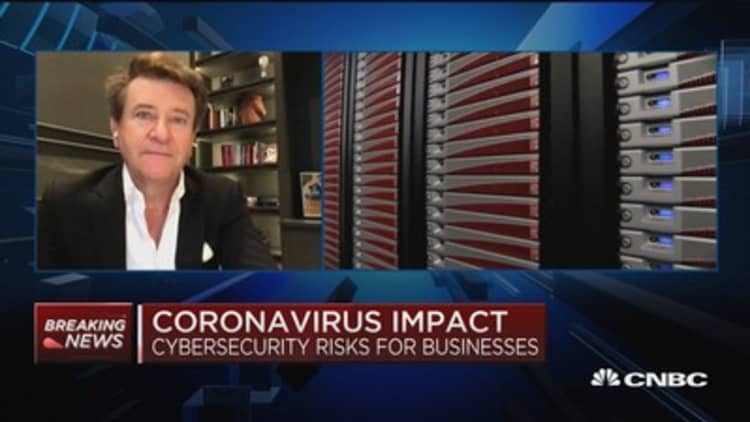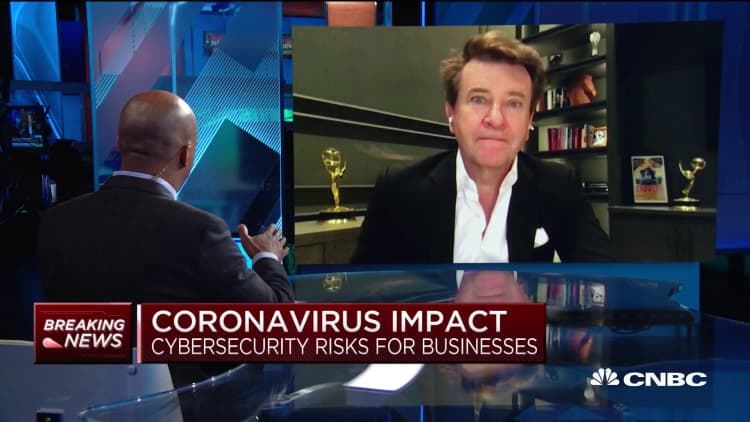
The coronavirus has created "the golden age for hackers," "Shark Tank" investor Robert Herjavec said Thursday.
"You couldn't have picked a more perfect time to hack somebody," the cybersecurity entrepreneur said on CNBC's "Squawk Alley."
Herjavec said his company — the Herjavec Group, which provides cybersecurity products and services to business — has seen an increase in alert volumes.
"We're seeing the amount of IR, which is remediation work, people that have been breached, way up. We've seen more work in the last three weeks in that area than in the last 16 years," he said. "So the hackers are definitely out there."
Herjavec shared tips for people to stay safe online while working from home and using popular video chat services like Zoom.
Work from home
Employees of large corporations who are now working remotely will likely be logging into the company's network, Herjavec said.
That could mean "you have a secure laptop or a secure connection," he said. "But here's the challenge: they go out to the bathroom or they go get breakfast and they leave their laptop and their teenager comes along and starts opening another session."
To counteract any potential problems from situations like that, Herjavec said employees have to be sure they log out of the secure connection when they're not using it.
Phishing
While there have been warnings for years about phishing emails and phone calls, Herjavec said they remain one of the most common scam tactics.
"Eighty-five percent of all malware still comes through phishing attacks," he said. "And phishing preys on our ego, on our vanity and on our weaknesses."
And the COVID-19 pandemic only accentuates those vulnerabilities, Herjavec argued.
"People are looking for information right now so we're seeing a lot of 'COVID-19 update' or 'how to apply for an SBA loan update' and all those kinds of things," he said.
Herjavec said people should treat any emails on subjects like those with extreme caution. If people are not familiar with the link, he advised they hover over the link in the email before clicking on it.
"When you hover over it, if it doesn't appear the way it is in the email, it could be a phishing attack," he said. "So just be very careful."
Zoom
Zoom has seen dramatic usage increases as tens of millions of people around the world stay home to slow the spread of COVID-19. But its newfound popularity has been accompanied by a flood of privacy concerns, such as "zoombombing" intrusions, and it's been criticized for sharing data with Facebook.
Zoom CEO Eric Yuan apologized for the lapses Thursday and said the company was taking steps to improve security.
But Herjavec said Zoom users can do things immediately to beef up privacy.
"If you just go to settings, you can add passwords. You can add encryption," he said. "And a lot of people aren't doing that because they're just rushing to Zoom."
"But we really encourage people to do that," he added.

Disclosure: CNBC owns the exclusive off-network cable rights to "Shark Tank."


